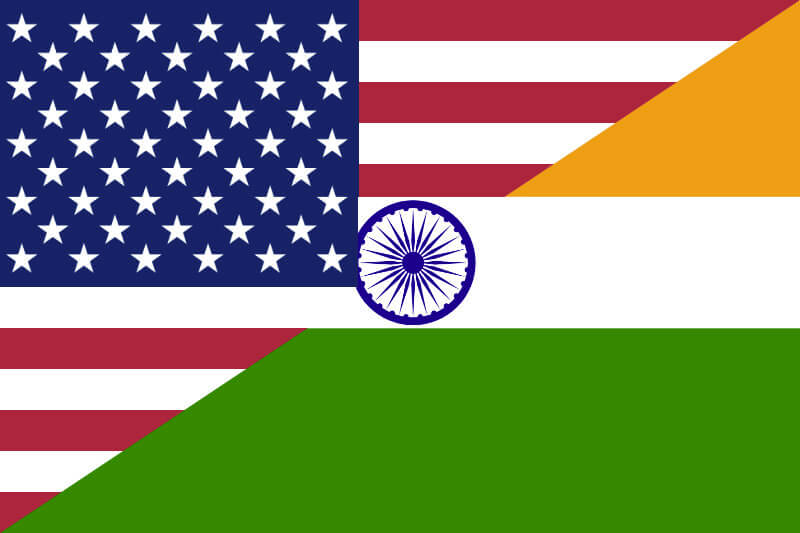India and U.S: Military Allies or Economic Adversaries?
June 11, 2019 | Expert Insights

Background
India and America are the world’s two largest democracies; and understanding how the current Trump administration views India in terms of global power and economic importance can give policymakers an insight into the direction of foreign policy, and where India stands in the contemporary world order. Since India opened up its economy to western investments after the collapse of the USSR, India and the U.S have developed a strong bilateral trade relationship in which India actually enjoys the benefit of a surplus. Yet, India’s military relationship with Russia and U.S military support to Pakistan has always posed a challenge to Indo-American diplomacy.
Analysis
As a large nation sharing several borders and only recently breaking the surface of development, it is strategically important for India to maintain ties with several nations including China, Iran, Israel, Russia, USA, etc. These relationships often result in conflicts of interest between India and the United States. Most recently, India has found itself on the receiving end of Trump’s global trade war during a period of escalating tensions between Iran and America. Trump threatened sanctions against nations that continue to procure oil from Iran and this has put India in a rather awkward position. India considers Shia Iran to be a potential ally against a predominantly Sunni Pakistan, as well as a strategically vital nation in terms of gaining access to Central Asian markets. It seems as though New Delhi’s loyalty to American adversaries might come at a heavy cost to the Indian economy.
Americans are confident that India greatly benefits from trade with the US and in turn expect India to comply with its demands under Trump’s administration. The conflict here lies in the fact that both Trump and Modi are trying to revert to protectionism and oftentimes, bowing down to US diktats would go against Indian national interests. India’s $53 billion deficit to China is another point of conflict when it comes to Indo-American trade relations. It is important for India to maintain a healthy trade relationship with China in order to clear the deficit, but this is proving to be increasingly challenging at a time when Trump has engaged China in a trade war. However, strategic negotiations could provide Indian markets with a valuable opportunity to fill a void in the global supply chain.
Military ties between the US and India have vastly improved under the Obama administration, with Obama designating India as a “Major Defense Partner”, a status that is enjoyed by no other nation. In fact, India is the only nation outside the non-proliferation treaty that has been allowed to explore its nuclear capabilities without sanctions. Under Trump’s administration, despite disagreements about trade, US and India have committed to strengthening their defense partnership and commitment to counter-terrorism efforts. This has led to a great deal of military collaboration, maritime co-operation, and joint cybersecurity efforts. There is still an opportunity for tension with regards to the fact that New Delhi has maintained a military relationship with Moscow which recently culminated in a range of arms deals including the production of Kalashnikovs, a $3 billion nuclear submarine deal as well as a recent $5 billion S-400 air missile defense deal. Such deals could put India at risk for US imposed sanctions under the Countering America’s Adversaries Through Sanctions Act (CAATSA) and impede what is currently a burgeoning Indo-American military alliance.
Assessment
Our assessment is that the way Americans view India now and in the future depends entirely on Modi’s willingness to meet Trump’s demands and resist from fraternizing with American enemies like Iran, Russia and China (the new world axis powers). But India is not the only beneficiary of trade with the United States. America is actually heavily reliant on India for the import of several goods and with the current trade war with China, India has the capacity to make up for lost imports. But Donald Trump’s immigration policies that blame immigrants to “stealing” US jobs, coupled with a growing culture of xenophobia threatens Indian immigrants in America and further negatively influences the way India is viewed by Americans. Modi must perform a strategic balancing act in order to maintain the status quo and maximize national interests from New Delhi’s relationship with Washington D.C. while simultaneously ensuring that its relationships with Iran, Russia, and China are not put in jeopardy.








Comments